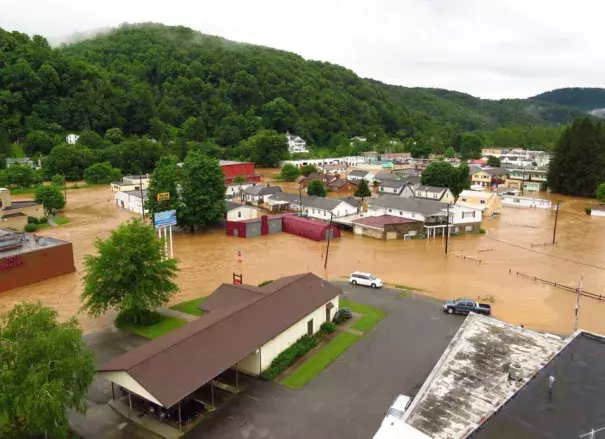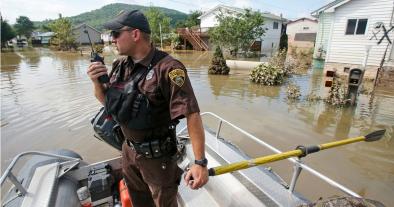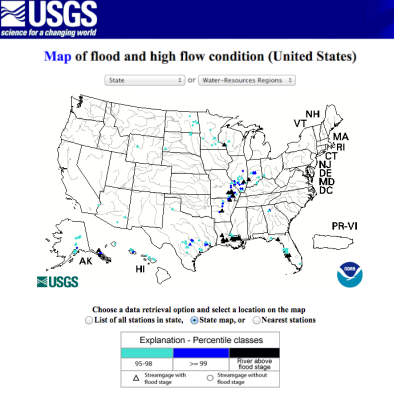Gazette-Mail editorial: Nature ravages as weather warms

Two natural disasters struck America at the same time: West Virginia’s tragic flash flooding and the West Coast’s drought-driven wildfires burning hundreds of homes.
Thoughtful people need to ponder an ominous question: Are such horrors linked to pollution-caused global warming that creates ever-worse weather?
Hotter air holds more moisture, causing more violent storms, drier droughts, worse floods and such climate perils.
The year 2014 was the hottest ever recorded — then 2015 eclipsed it — and now 2016 is significantly hotter than 2015 was.
“Scientists are warning that climate change has reached unprecedented levels and is no longer only a threat for the future,” London’s Guardian wrote last week. “Alongside the soaring temperatures, other records have tumbled around the world, from vanishing Arctic Sea ice to a searing drought in India and vast bleaching of the Great Barrier Reef…. Scientists predict that flash floods… will increase in the future.”
Penn State University climatologist Michael Mann warned: “Impacts of human-caused climate change are no longer subtle — they are playing out, in real time, before us.”
British climatologist Adam Scaife said 2016 temperatures are “obliterating” past records. “The numbers are completely unprecedented.”
The Guardian added: “Another shattered record is the amount of carbon dioxide in the atmosphere, which is on course to rise by a record amount this year.” It quoted a German scientist: “We know from Antarctic ice cores that go back almost a million years that CO2 was never even remotely as high as this.” The London paper added: “The rate at which humanity is emitting CO2 is the fastest for 66 million years.”
Carbon dioxide forms a “greenhouse” layer in the sky that keeps heat concentrated on the planet’s surface.
In the aftermath of West Virginia’s flood tragedy, it’s a time to grieve for the dead and shelter multitudes of families who lost their homes, jobs and possessions.
But later, after the immediate crisis is past, conscientious people should think about causes of devastating weather
Related Content





